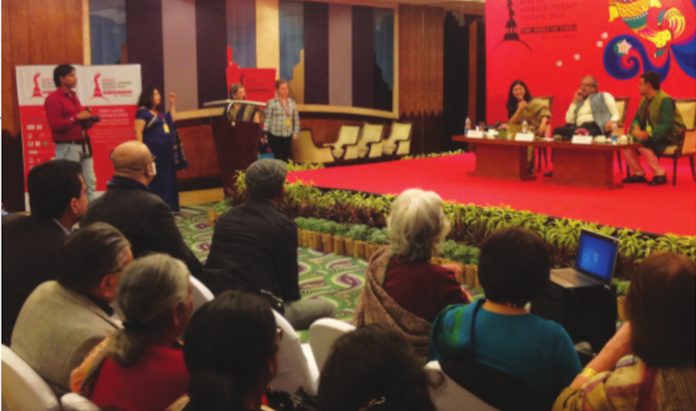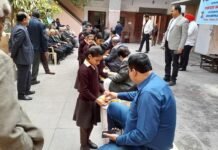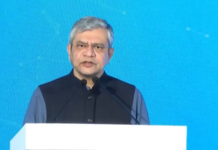For a self confessed fan of the massive youth presence at the Jaipur Literary Fest like myself, the Apeejay Kolkata Lit Fest was a bit of a dampener. The crowds were missing despite a galaxy of stars from art, music, dance, theatre, cinema and the literary world like Amir Khan, Ustaad Amjad Ali Khan, Farukh Dhondy, Mark Tully, Anita Nair, Amit Chaudhuri, Upamanyu Chatterjee, Rana Dasgupta, Mani Shankar Mukherjee and many others. It was somewhat of a missed opportunity for the organizers, the Apeejay group run Oxford Book Stores as they kept the fest restricted within the bounds of select hotels and club
and could not bring its offerings out in the open to the thousands of books lovers of the art hungry city. Nonetheless, true to the spirit of our times, women writers and women centric topics were at the forefront.
Discussing women with spunk
The offering at the AKLF was however rich and varied, and IPP attended a lively discussion on the feisty and courageous women who made a difference prior to independence,
‘First Ladies – Of Divas and Spies.’ We later spoke to Shrabani Basu, the UK correspondent of Anandabazar Patrika and The Telegraph, who as author of the book Spy Princess: The Life of Noor Inayat Khan was one of the panelists discussing the theme. The other panelist was the reputed author and historian Vikram Sampath, the Bangalore-based polymath engineer, mathematician, Carnatic vocalist, and one of the founder directors of the Bangalore Lit Fest. Sampath talked about the central character in his book about India’s first recording artist, My name is Gauhar Jaan: The life and times of a musician
One of the early pre- independence women musicians, Gauhar was branded a ‘tawaiif’ in the days when good women never sang in the streets. She used to often drive through the streets of Calcutta in a four-horse-driven buggy that only the British and Indian royalty could afford. One day she crossed the cavalcade of the viceroy who raised his hat in acknowledgement wondering who this fair skin woman wearing a big fancy goggles and dressed in finery,
speeding across the maidan in her buggy. Gauhar waved back at him but was summoned a day later and fined Rs. 1,000 when the viceroy on enquiry, found that she was not the queen of a ‘riyasat’ but a ‘tawaiif.’ Gauhar was unperturbed and kept on with her daily jaunts across the city each day after paying the fine of Rs. 1,000.
Researching secret service files
Basu painstakingly researched on Noor Inayat Khan after she saw a five line news item covering Indians and Gurkhas who helped the British during the second world war in the The Times. It talked about an India born secret service agent codenamed Madeleine who received the George Cross for working as a radio operator for the Royal Air Force in France under siege in 1943, till she was captured and executed at the German concentration camp in Dachau. Basu found that the gentle and shy Khan, a descendant of Tipu Sultan was a fierce champion of freedom and justice. A champion of the Indian freedom movement, with an American mother and an Indian father she was educated in England and France.
When asked at a RAF interview for promotion whether she would support the British against Indian freedom fighters, she retorted angrily that she would first fight for the British against German fascism and then for the Indians against the British. Though she lost the much needed promotion, Khan was an irrepressible character — a centre piece of the resistance movement against the Germans in occupied France, and too valuable for the British to let go.
Basu’s well researched text has drawn insights from the secret service files declassified in 2003 that the author says is a huge storehouse of information for researchers and historians. Her other books are Victoria and Abdul a story about the Indian servant of the British queen, and Curry the new British Obsession, about Indian food.

















